The controversy surrounding Arla Foods’ use of hitherto little-known animal feed additive Bovaer (and its purported threat to human health) has dominated the headlines for the past week – demonstrating, yet again, the power of social media.
And after a social media outcry and calls for a boycott of Arla’s products, followed by a similar storm across traditional, national media, it appears that even a seemingly innocuous corporate announcement has the potential to create a PR bin fire almost impossible to contain.
The additive in question – made by Dutch/Swiss life sciences company DSM-Firmenich – is currently being trialled on 30 farms in the UK, as part of a partnership with Tesco, Aldi and Morrisons through Arla’s FarmAhead customer partnership.
When the trial was announced on 26 November, the dairy giant said Bovaer had the potential to reduce methane emissions from cows by an average of 27% – with the obvious benefits for both its retail partners and Arla itself in meeting fast-approaching carbon emission reduction targets.
“We know that reducing methane is a big opportunity when it comes to improving our carbon footprint at farm level and feed additives like Bovaer have huge potential in helping us tackle this issue,” said an “excited” Arla UK agricultural director Paul Dover last week.
“Bringing partners together from across the food and grocery industry in this kind of initiative highlights the support for British farmers in transitioning to more sustainable farming methods,” he added.
Arla’s social media storm
It was hardly an earth-shattering announcement – in fact, Tesco revealed its involvement in the project in July to little fanfare – and one would have expected the news to quickly become tomorrow’s fish & chip paper (to borrow a phrase from the golden age of print journalism).
That sentiment would have been reinforced by the fact that livestock sectors have been discussing the benefits of feed inhibitors as part of a package of emission reduction interventions for many years. M&S has spoken about using Bovaer this year as well.
What no one expected was the ensuing social media storm, with Arla, Lurpak and Cravendale trending on X for most of last week alongside videos of consumers pouring various Arla products down the toilet.
There was plenty of what Arla termed “misinformation” behind the social media outcry, as well as outright conspiracy theories, with some people (incorrectly) linking Bovaer to Bill Gates and the supposedly nefarious work of the World Economic Forum. Others were denying the impact of climate change altogether.
Against this backdrop, I published this piece for The Grocer last Friday – which turned out to become our best-read story of 2024 in a matter of days. With the article stating Bovaer is indeed safe and compliant with regulations, I then faced a barrage of accusations that I was in the pay of ‘Big Dairy’ and had not done my research.
Many of those commenting on social media took aim at a passage in the FSA’s approval notice for Bovaer, published in March 2023, which said: it “should be considered corrosive to the eyes, a skin irritant and potentially harmful by inhalation”.
As one farming sector source told me this week, that is the case for a host of other chemicals used on farms, from sheep dip to sodium hydroxide and many more. And no, you wouldn’t consume them either.
But just for clarity’s sake, and at the risk of further accusations The Grocer is somehow in the pocket of the dairy sector, that very same notice – which approves the use of Bovaer – says it “can be considered safe for the target species”.
That FSA approval is also mirrored by the European Food Safety Authority and regulatory bodies in 29 other countries around the world.
The Bovaer trial continues
As Arla stressed it would continue with its trial, the dairy giant also added that “science tells us that it is both proven safe for consumers and effective in reducing emissions, which is why the project is taking place across 30 Arla farms”.
DSM-Firmenich has also pointed out the additive is metabolised in a cow and has zero effect on milk.
It adds: “There is no justification for the spread and amplification of this fake news. We are scientists, we deal in facts, and we would never market a product that was not safe. We are grateful for independent, third-party experts, farmers and farmers’ organisations who have come out to counter this misinformation.”
Setting all of this aside, many people will have valid concerns around the use of the additive and it would be foolish to discount these concerns. Arla and its retail partners have taken a very careful line on their comms around this controversy.
But whether you believe Arla and DSM-Firminech or think ‘Big Dairy’ is trying to poison the population, the controversy also raises some very serious questions – not least the power of a social media pile-on to damage the image of brands.
Another industry source this week told The Grocer that “while this additive isn’t poisonous to people, it sure is poison for Arla”, adding its use of Bovaer was simply untenable.
A silver bullet for sustainability
The story has some serious implications for the dairy sector’s wider ambitions to become more sustainable too.
The Grocer has reported at length in recent years about the challenges facing the dairy sector in meeting climate targets. As recently as July of this year, meat and dairy giants were accused of derailing global climate action, while countless other studies have warned progress is slowing on this key issue – reinforced by our big feature last week.
A number of other dairy sector sources – who have been keen not to attract criticism for their opinions – have warned interventions like Bovaer are seen as a “silver bullet” by the sector. They are seen as an opportune tool to meet increasingly demanding retailer calls to tackle emission reduction as the sector scrambles to meet scope 3 targets by the end of the decade.
“Bovaer should have been something they deployed in a few years,” suggested one expert. “They should have instead been focused on improving animal husbandry and increasing efficiencies in other ways.”
It’s also telling that many dairy businesses, notably Yeo Valley and Graham’s the Family Dairy, have distanced themselves from such additives in light of this controversy.
And there are huge cost implications – something that Arla recognised in its announcement last week – to rolling out Bovaer on a wider scale, which could ultimately drive inflation.
Whether that will ever happen now is unclear, but the whole mess has shown that the sector’s thus-far united front on climate action could well be on shaky ground. And it will require much more work if ‘Big Dairy’ is to hit those targets.







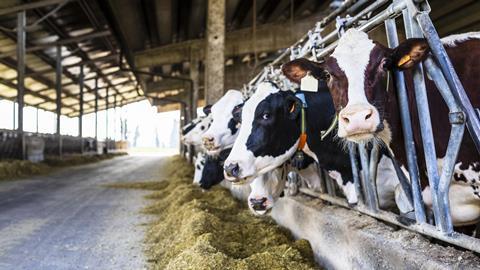
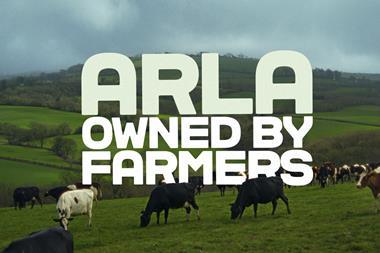
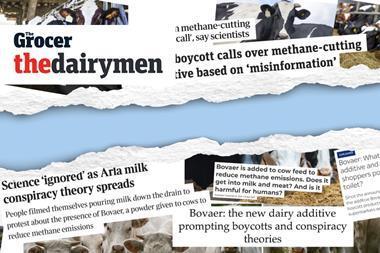
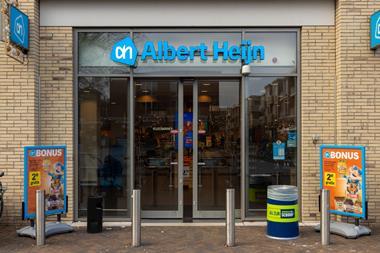
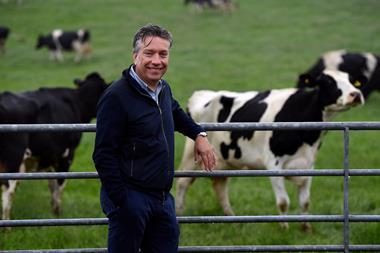
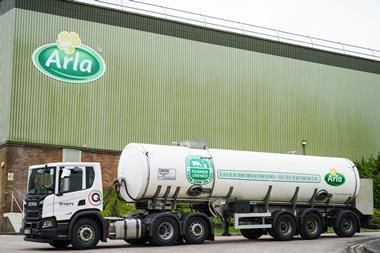
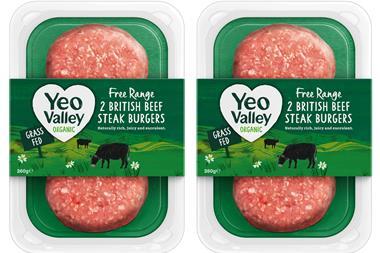



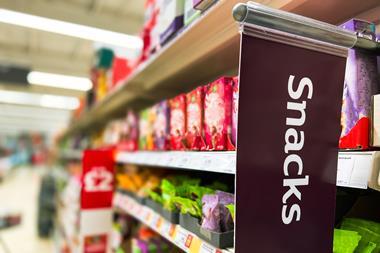

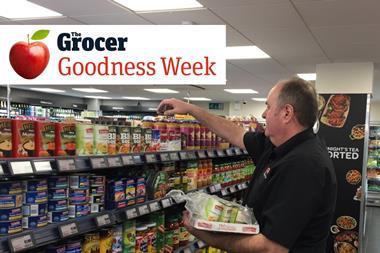
No comments yet